- Home
- Lorenzo Carcaterra
Sleepers Page 31
Sleepers Read online
Page 31
I had not seen Father Bobby since the night I asked him to take the stand. I thought it too risky to approach O’Connor and find out what he knew, and Michael was beyond my reach. Everyone in the neighborhood seemed aware that we had a witness stashed.
But no one, not even King Benny, had the word on who the witness was and when he would show.
“If he’s not here tomorrow, then forget it,” I said to Carol as the third day ground to an end. “It’s over.”
“We could try to find somebody else,” Carol said. “We still have some time.”
“Who?” I said. “The Pope’s in Rome and I don’t know any rabbis.”
“We can go and talk to him again,” Carol said. “Or maybe have somebody else talk to him.”
“He’s not afraid of King Benny,” I said, walking with Carol down the courthouse corridors. “And Fat Mancho won’t even go near a priest.”
“Then we can force him to do it,” Carol said with a shrug and a half-smile. “Put a gun on him.”
“You want your witness to have one hand raised in court,” I said. “Not two.”
We stopped by the elevator bank and waited, Carol pushed closer to me by the surrounding cluster of court officers, reporters, lawyers, defendants, and their families. The down arrow rang and lit, and the double doors to the elevator creaked open. We squeezed in with the pack, pushed to the back of the car. We both managed to turn and face forward, my eyes looking at the scarred neck of a husky Hispanic wearing an imitation leather jacket with a fake fur hood. He was breathing through his open mouth and his dank breath further fouled the musty air.
As we rode down the nine floors, the elevator stopping at each one, I looked over to my far left and saw Danny O’Connor standing there. He had his back against the elevator buttons, a Tudor hat on top of his head and his eyes on me. He was chewing a thick piece of gum and had an unlit cigarette in his mouth.
If he knew anything, his face wasn’t showing it.
The doors finally opened onto the main floor and the passengers stormed out of the car. I grabbed Carol by the arm and made my way closer to O’Connor, who was content to let the rush of people pass him by before he stepped off. The three of us came out of the elevator at the same time, my elbow brushing against O’Connor’s side.
“I’m sorry,” I said.
“Not a problem,” he said, looking at me and Carol. “Riding these elevators is like riding the IRT. Only not as safe.”
“Lucky it’s cold,” I said. “I’d hate to see what it’s like in there during a heat wave.”
“It was nice bumping into you,” O’Connor said with a smile, moving toward the revolving exit doors.
“Why the rush?” I asked, watching him leave.
“Gotta go,” he said over his shoulder. “I’m late.”
“Late for what?”
“Mass,” O’Connor said.
18
“CALL YOUR NEXT witness,” Judge Weisman said to Danny O’Connor.
“Your honor, the defense calls to the stand Father Robert Carillo.”
Father Bobby walked through the courtroom with the confidence of a fighter heading into a main event. His thick hair was brushed back, his eyes were clear, and his careworn face shone under the glare of the overhead lights.
“Raise your right hand,” the bailiff said. “And place your left hand on the Bible.”
“Do you swear that what you say shall be the truth, the whole truth, and nothing but the truth?”
“I do,” Father Bobby said.
“Take the stand,” the bailiff said.
“Father Carillo, to which parish do you belong?” Danny O’Connor asked.
“The Sacred Heart of Jesus on West Fiftieth Street.”
“And how long have you been there?”
“It will be twenty years this spring.”
“And what is your position there?”
“I’m a priest,” Father Carillo said, smiling.
O’Connor, the spectators, and the jury all joined in the laugh; even Judge Weisman cracked a smile, but John and Tommy sat in stone silence, hands cupped to their faces, while Michael chewed on the end of a blue Bic pen.
“I’m sorry, Father,” O’Connor said. “I meant, what do you do there?”
“I’m the school principal,” Father Bobby said. “I teach seventh grade and coach most of the sports teams. I’m also acting monsignor, serve mass daily, listen to confessions, and try to repair whatever needs fixing.”
“They keep you busy,” O’Connor said.
“It’s a poor parish,” Father Bobby said. “Low on funds and short on staff.”
“Do you know most of the people in your parish?”
“No,” Father Bobby said. “I know all the people in my parish.”
“Do you know the two defendants, John Reilly and Thomas Marcano?”
“Yes, I do,” Father Bobby said.
“How long have you known them?”
“Since they were boys,” Father Bobby said. “They were students of mine.”
“How would you describe your relationship with them today?”
“We try to stay in touch,” Father Bobby said. “I try to do that with all my boys.”
“And how do you do that?”
“Through sports, mostly,” Father Bobby said. “We either organize a game or go to one. It’s a common ground. Makes it easier to get together.”
“Father, do you recall where you were on the night of November sixth of this past year?”
“Yes, I do,” Father Bobby said.
“And where was that?”
“I was at a basketball game,” Father Bobby said. “At the Garden. The Knicks against the Hawks.”
“What time does a Knicks game begin?”
“They usually start at about seven-thirty,” Father Bobby said.
“And at what time do they end?”
“Between nine-thirty and ten,” Father Bobby said. “Providing there’s no overtime.”
“Was there any that night?”
“No, there wasn’t,” Father Bobby said.
“And who won the game, Father?”
“Sad to say, it was the Hawks,” Father Bobby said. “They were a little too much for our guys that night.”
“Were you at the game alone?”
“No,” Father Bobby said. “I went there with two friends.”
“And who were those two friends, Father?”
“John Reilly and Thomas Marcano,” Father Bobby said.
“The two defendants?”
“Yes,” Father Bobby said, gesturing toward John and Tommy. “The two defendants.”
The spectators sitting behind the wooden barrier gave a collective cry. Carol put her head down, her hands covering her mouth, her shoulders shaking. Michael took a deep breath and looked toward the ceiling.
John and Tommy turned around, scanning the spectators, their bodies relaxing. As they turned to face the bench, they looked over at me. I smiled as they looked down at the cover of the book in my hands.
John had tears in his eyes.
I was holding a copy of The Count of Monte Cristo.
“What time did you meet with Mr. Reilly and Mr. Marcano?” O’Connor asked soon after Judge Weisman hammered a call to order.
“They picked me up outside the school playground,” Father Bobby said. “It must have been six-thirty or thereabouts.”
“How did you get to the Garden, Father?”
“We walked,” Father Bobby said. “It’s less than twenty blocks.”
“And Mr. Reilly and Mr. Marcano walked with you the whole time?”
“Yes,” Father Bobby said. “We walked together.”
“And at eight twenty-five P.M., the time police say the victim, Sean Nokes, was murdered, were you still with Mr. Reilly and Mr. Marcano at the basketball game?”
“Yes, I was,” Father Bobby said. “If they were out of my sight at all during the game, it was either to go to the bathroom or to get something to dr
ink.”
“What did you three do after the game?”
“We walked back to the parish,” Father Bobby said.
“Was it a cold night?”
“Windy, as I recall,” Father Bobby said.
“Did you stop anywhere?”
“At a newsstand on Eighth Avenue,” Father Bobby said. “I bought an early edition of the Daily News.”
“And at what time did you, Mr. Reilly, and Mr. Marcano part company?”
“About ten-thirty, maybe a few minutes later,” Father Bobby said. “They left me in front of the rectory, near where they picked me up.”
“Did the two defendants tell you where they were going after they left you?”
“No,” Father Bobby said. “But I would imagine after a night spent with a priest, they went looking for the first open bar they could find.”
O’Connor waited for the snickers to subside.
“So then, Father, if the two defendants were with you on the night of the murder, they couldn’t have shot and killed Sean Nokes, as the prosecution claims. Isn’t that correct?”
“Unless they shot him from the blue seats at the Garden,” Father Bobby said.
“No, Father,” O’Connor said with a smile. “He wasn’t shot from there.”
“Then he wasn’t shot by those boys,” Father Bobby said.
“I have no further questions,” O’Connor said. “Thank you, Father.”
“It was my pleasure,” Father Bobby said.
“Your witness, Mr. Sullivan,” Judge Weisman said.
“Thank you, your honor,” Michael said, standing up and walking over to Father Bobby.
“Did you buy the tickets for the game, Father?” Michael asked. “Or were they given to you?”
“No, I bought them,” Father Bobby said.
“On the day of the game?”
“No,” Father Bobby said. “I went to the box office about a week before.”
“How did you pay for the tickets?”
“With cash,” Father Bobby said. “I pay for everything with cash.”
“Did you get a receipt?”
“No,” Father Bobby said. “I didn’t.”
“Did anyone know you were going to the game,” Michael asked, “other than the two defendants?”
“I don’t think so,” Father Bobby said.
“When did you ask the defendants to go to the game with you?”
“The Sunday before,” Father Bobby said.
“Was anyone else present?”
“No,” Father Bobby said.
“So, no one saw you buy the tickets,” Michael said. “There’s no record of any purchase. And no one else knew you were going with the defendants. Is that right?”
“That’s right,” Father Bobby said.
“So how do we know you were there?” Michael asked. “How do we really know you and the two defendants were at the game on the night of the murder?”
“I’m telling you both as a witness and as a priest,” Father Bobby said. “We were at that game.”
“And a priest wouldn’t lie,” Michael said. “Isn’t that right?”
“A priest with ticket stubs wouldn’t need to lie,” Father Bobby said, putting a hand into his jacket pocket and pulling out three torn tickets. “And I always keep the stubs.”
“Why’s that, Father?” Michael asked, standing next to him. “Why do you keep them?”
“Because you never know,” Father Bobby said, looking straight at Michael, “when someone will want more than your word.”
“Has anyone questioned your word before today?”
“No,” Father Bobby said. “No one ever has. But there’s a first time for most things in this world.”
“Yes, Father,” Michael Sullivan said. “I guess there is.”
Michael turned from Father Bobby and looked up at Judge Weisman.
“I have no further questions at this time,” Michael said. “Witness is free to go.”
The spectators applauded as Father Robert Carillo, a Catholic priest from Hell’s Kitchen, stepped down from the stand.
19
I PUT ONE foot on a rusty mooring, my hands in my pockets as I looked out at the Hudson River. The skies were overcast and the winter air felt heavy with impending snow. Carol had her back to me, staring past the iron legs of the West Side Highway toward the streets of Hell’s Kitchen. It was early evening, six hours removed from Father Bobby’s testimony.
I still hadn’t recovered from seeing him take the stand and lie for us. He didn’t just testify for John and Tommy, he testified against Wilkinson and the evil that had lived there for too long. Still, I was sorry he had to do it, to tell the lie that I know must have cost him dearly, just to help us get our ounce of revenge.
I was sorry any of us had to go through this trial. I wondered about Carol, and how these days would affect her. She was smart and attractive, and should have been spending her time meeting men who did more than simply combat the ghosts of their pasts. I prayed that the trial would free Michael of his demons and allow him to go on with his life. As for John and Tommy, I hoped the best for them, but feared only the worst.
It just seemed that no matter how hard we tried, no matter how many of them we got, we could never rid ourselves of the Wilkinson Home for Boys. My friends and I had to live with it. Now Carol and Father Bobby had to live with it as well.
Carol turned toward me and, sensing my unease, leaned over and hugged me.
“That place is a part of me and a part of Father Bobby too,” Carol said. “In different ways, maybe. But it’s in our lives. And it’s going to stay in our lives. No matter what we do now.”
“None of it helps make it even,” I said. “We’ve got a long way to go till we get to even.”
“But you’ve got to admit,” Carol said, “you’re off to a helluva nice start.”
“I was real proud of him up there,” I said, wiping tears I couldn’t control.
“We were all proud of him,” Carol said. “And Father Bobby did it not because we asked him to. But because it was the only thing he could do. He had no choice either, Shakes.”
“He looked like Cagney up there,” I said. “Looked everybody square in the eye. Didn’t back off for a second.”
“More like Bogart, you mean,” Carol said, smiling, putting an arm around my waist.
“I’ll never understand how you could have grown up around here and still think Bogart’s better than Cagney,” I said.
“I suppose you think the Three Stooges are better than the Marx Brothers too.”
“Hands down, porcupine-head.”
“And you probably like John Wayne westerns too,” she said.
“There’s where you’re wrong,” I said. “I love John Wayne westerns.”
“You’re hopeless.” And then Carol Martinez laughed out loud. It was the first time I’d heard real laughter in a very long time.
“We’re all hopeless,” I said, walking with her alongside the dock, up toward Pier 82, her arm under my elbow. “That’s why we’re still together.”
“But I swear, if you tell me you still think Soupy Sales is funnier than Woody Allen, it’s gonna be all over,” Carol said. “I mean it.”
“Can Woody Allen do White Fang?” I asked her.
“Probably not,” she said.
“That’s right,” I said. “Nobody does what Soupy does, because nobody can.”
“No, Shakes,” Carol said. “It’s because nobody wants to.”
The sound of our laughter echoed off the empty steel piers and out into the rough waters of the Hudson.
20
AT NINE-TEN A.M., on a rainy Thursday morning in January 1980, Michael Sullivan stood in the well of a courtroom and addressed a jury for the last time in his career.
That morning, he had carefully chosen his dark gray suit, blue tie, and black loafers. Two thin specks of dried blood clung to his right cheek, thanks to a close shave with an old razor. He had a Superman wristwatch on hi
s left hand, an egg-shaped college graduation ring on his right, and a cherry Life Saver in his mouth.
“Is counsel ready?” Judge Weisman asked.
“Yes, your honor,” Michael said. “I’m ready.”
“Please proceed,” Judge Weisman said.
Michael pushed his chair back and walked toward the jury box, twelve faces studying his every move. He put one hand in his pants pocket, caught the eye of the eldest member of the panel, and smiled.
“You have to admit, it’s been an interesting couple of weeks,” Michael began, his free hand rubbing the rail of the jury bench. “And it sure beats deciding a civil court case.”
He waited with his head down for the scattered laughter to fade.
“But now you have a decision to make. A very difficult decision. A decision whose weight will determine the fate of two young men.
“You’ve heard the arguments from both sides. My side tells you the defendants, John Reilly and Thomas Marcano, shot and killed the victim, Sean Nokes. The other side tells you they didn’t. In fact, if you really want to know the truth, they weren’t even there to kill him.
“So, who to believe? That’s what you must now decide.”
Michael moved slowly down the jury box, taking care to look at every member of the panel, looking beyond their faces, beyond their eyes.
“So how do you reach a decision? You start by going over what you know based on the evidence that was presented. You know that Sean Nokes was murdered on November 6, 1979, at eight twenty-five in the evening. You know he was shot to death while sitting in the back booth of the Shamrock Pub. And you know he was gunned down by two men in black jackets. But which two men? That’s where things start getting a little fuzzy.”
Michael had both hands in his pockets now as he walked past the court stenographer, his head raised, his back to the jury. The spectators in the crowded courtroom were, with a handful of exceptions, all from Hell’s Kitchen.
“You heard testimony that painted the two defendants as less than ideal citizens. Does that make them killers? Then you heard testimony that described Sean Nokes as a man with an ugly past. Does that make it less than a crime to kill him? You heard from an eyewitness who saw the two defendants walk out of the Shamrock Pub moments after shooting Sean Nokes dead. Then you heard from a priest who said the two defendants were with him at a Knicks game, eating hot dogs and drinking beer at the same time Sean Nokes was sitting up dead in a back booth. So, who do you believe? Who’s lying? Who’s telling the truth?”

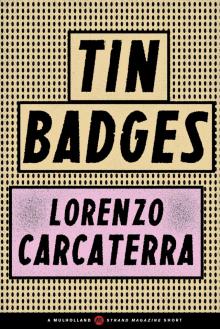 Tin Badges
Tin Badges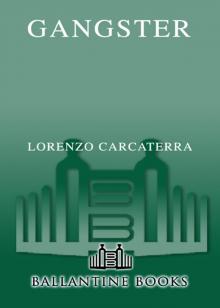 Gangster
Gangster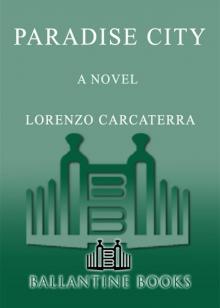 Paradise City
Paradise City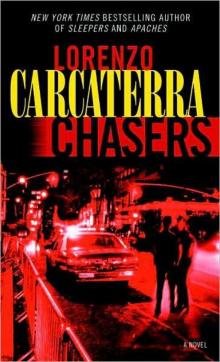 Chasers
Chasers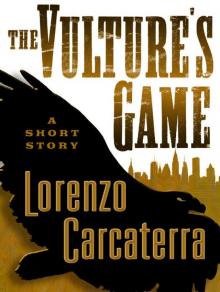 The Vulture's Game
The Vulture's Game Payback
Payback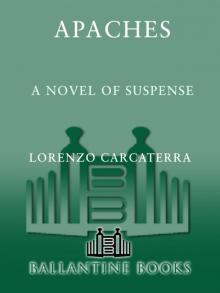 Apaches
Apaches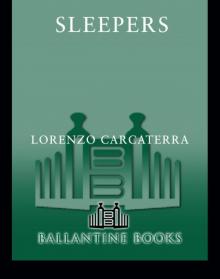 Sleepers
Sleepers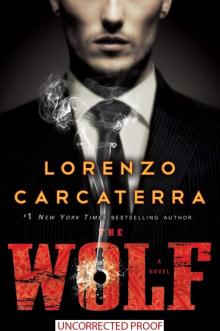 The Wolf
The Wolf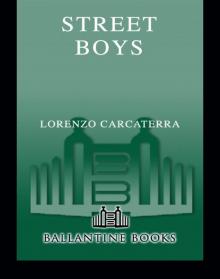 Street Boys
Street Boys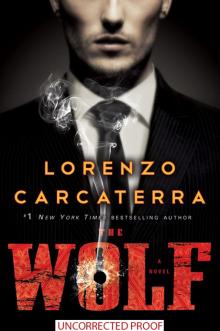 The Wolf: A Novel
The Wolf: A Novel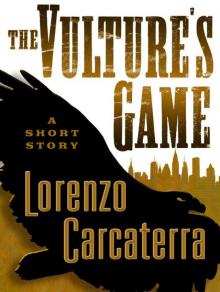 The Vulture's Game (Short Story)
The Vulture's Game (Short Story)